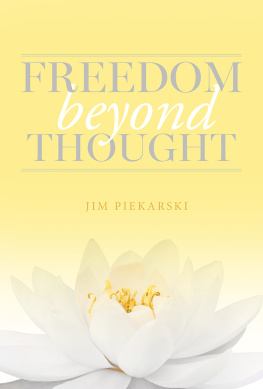RISKING
Sometimes it seems to me that in this absurdly random life there is some inherent justice in the outcome of personal relationships. In the long run, we get no more than we have been willing to risk giving.
LOVE
Love is more than simply being open to experiencing the anguish of another persons suffering. It is the willingness to live with the helpless knowing that we can do nothing to save the other from his pain.
THE DEPENDENT DISCIPLE
While seeking to be taught the Truth the disciple learns only that there is nothing that anyone else can teach him The secret is that there is no secret.
IF YOU MEET THE BUDDHA ON THE ROAD, KILL HIM!
This edition contains the complete text
of the original hardcover edition.
NOT ONE WORD HAS BEEN OMITTED.
IF YOU MEET THE BUDDHA ON THE ROAD, KILL HIM!
A Bantam Book/published by arrangement with Science and Behavior Books, Inc.
PUBLISHING HISTORY
Science and Behavior edition published December 1972
Bantam edition/May 1976
All rights reserved.
Copyright 1972 by Science and Behavior Books, Inc.
No part of this book may be reproduced or transmitted in any form or by any means, electronic or mechanical, including photocopying, recording, or by any information storage and retrieval system, without permission in writing from the publisher. For information address: Science and Behavior Books, Inc., P.O. Box 60519, Palo Alto, Calif. 94306.
eISBN: 978-0-8041-5096-5
Published simultaneously in the United States and Canada
Bantam Books are published by Bantam Books, a division of Random House, Inc. Its trademark, consisting of the words Bantam Books and the portrayal of a rooster, is Registered in U.S. Patent and Trademark Office and in other countries. Marca Registrada. Bantam Books, New York, New York.
v3.1_r1
Contents
Part One: Take from No Man His Song
1. Pilgrims and Disciples
DIFFICULTY AT THE BEGINNING works supreme success.
Furthering through perseverance.
Nothing should be undertaken
It furthers one to appoint helpers.
I Ching
In every age, men have set out on pilgrimages, on spiritual journeys, on personal quests. Driven by pain, drawn by longing, lifted by hope, singly and in groups they come in search of relief, enlightenment, peace, power, joy or they know not what. Wishing to learn, and confusing being taught with learning, they often seek out helpers, healers, and guides, spiritual teachers whose disciples they would become.
The emotionally troubled man of today, the contemporary pilgrim, wants to be the disciple of the psychotherapist If he does seek the guidance of such a contemporary guru, he will find himself beginning on a latter-day spiritual pilgrimage of his own.
This should not surprise us. Crises marked by anxiety, doubt, and despair have always been those periods of personal unrest that occur at the times when a man is sufficiently unsettled to have an opportunity for personal growth. We must always see our own feelings of uneasiness as being our chance for making the growth choice rather than the fear choice.
So, too, the patients longing for growth is the central force of his pilgrimage.
The psychotherapist needs only to be aware of this force, in his patient, and to keep it within his vision.
Of course, like everyone else (including the therapist), the patient is too often inclined to act out of fear, rather than out of his longing for growth. If not, pilgrimages would always begin out of an overflow of joy, rather than (as is more often the case) being conceived in pain and turmoil. People seek the guidance of a psychotherapist when their usual, self-limited, risk-avoiding ways of operating are not paying off, when there is distress and disruption in their lives. Otherwise, we are all too ready to live with the familiar, so long as it seems to work, no matter how colorless the rewards.
And so, it is not astonishing that, though the patient enters therapy insisting that he wants to change, more often than not, what he really wants is to remain the same and to get the therapist to make him feel better. His goal is to become a more effective neurotic, so that he may have what he wants without risking getting into anything new. He prefers the security of known misery to the misery of unfamiliar insecurity.
Given this all too human failing, the beginning pilgrim-patient may approach the therapist like a small child going to a good parent whom he insists must take care of him. It is as if he comes to the office saying, My world is broken, and you have to fix it.
Because of this, my only goals as I begin the work are to take care of myself and to have fun. The patient must provide the motive power of our interaction. It is as if I stand in the doorway of my office, waiting. The patient enters and makes a lunge at me, a desperate attempt to pull me into the fantasy of taking care of him. I step aside. The patient falls to the floor, disappointed and bewildered. Now he has a chance to get up and to try something new. If I am sufficiently skillful at this psychotherapeutic judo, and if he is sufficiently courageous and persistent, he may learn to become curious about himself, to come to know me as I am, and to begin to work out his own problems. He may transform his stubbornness into purposeful determination, his bid for safety into a reaching out for adventure.
You may then ask, Of what sustained value is the presence of the therapist to such a seeker? He can be useful in many ways. The therapist, first of all, provides another struggling human being to be encountered by the then self-centered patient, who can see no other problems than his own. The therapist can interpret, advise, provide the emotional acceptance and support that nurtures personal growth, and above all, he can listen. I do not mean that he can simply hear the other, but that he will listen actively and purposefully, responding with the instrument of his trade, that is, with the personal vulnerability of his own trembling self. This listening is that which will facilitate the patients telling of his tale, the telling that can set him free.
The therapist provides a dreamlike atmosphere , and in it [the patient] has nothing to rely upon except [his] own so fallible subjective judgment I have pirated this description. It was written by Carl Jung to describe the usefulness of the I Ching, the three-thousand-year-old Chinese Book of Changes, some lines from which I have used to begin this chapter.
At first, the patient tries to use the therapist, as many over the centuries have tried to use the I Ching, the oldest book of divination. The Book of Changes is made up of images from the mythology and social and religious institutions of the time of its origin. Orientals have too often searched these images for oracular guidance, just as some Christians have opened the Bible to verses picked at random in hope of getting specific advice about how to solve problems. So, too, the psychotherapy patient may begin by trying to get the therapist to tell him what he is to do to be happy and how he is to live without being fully responsible for his own life.
However, the I Ching
















